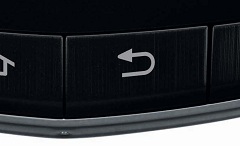
As a holdover until Microsoft ships the tablet-friendly Windows 8, I like the idea of a Windows 7 tablet that also runs Android. Sure, Windows 7 doesn’t play nicely with touch screens, but it’s a great operating system for getting work done, and when you’re finished, you can switch to Android for leisure.
That’s what ViewSonic tries to accomplish with its ViewPad 10pro tablet. The 10-inch slab runs Windows 7, and also includes an Android emulator on the desktop, letting you run proper tablet apps without restarting the machine. (A previous ViewSonic tablet, the ViewPad 10, dual-booted Windows and Android, requiring a restart to switch between them.)
It’s a neat idea in theory. But in practice, the ViewSonic 10pro only proves that some ideas are better left unrealized.




 I’m having trouble wrapping my head around Andy Rubin’s dismissal of Siri, the virtual assistant built into Apple’s iPhone 4S. Here’s what Rubin, Google’s senior vice president of mobile,
I’m having trouble wrapping my head around Andy Rubin’s dismissal of Siri, the virtual assistant built into Apple’s iPhone 4S. Here’s what Rubin, Google’s senior vice president of mobile,